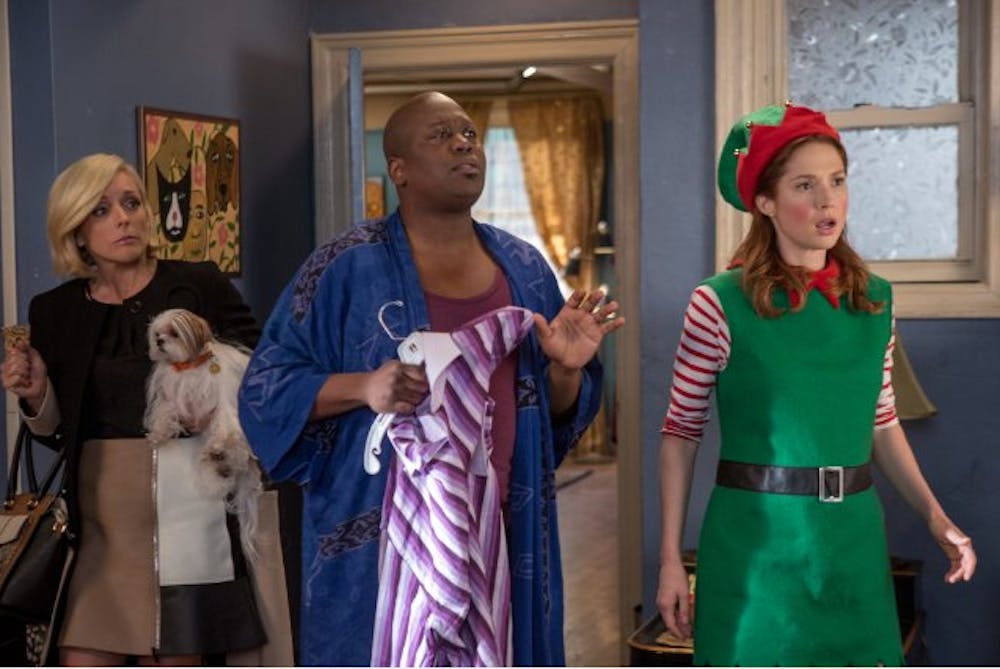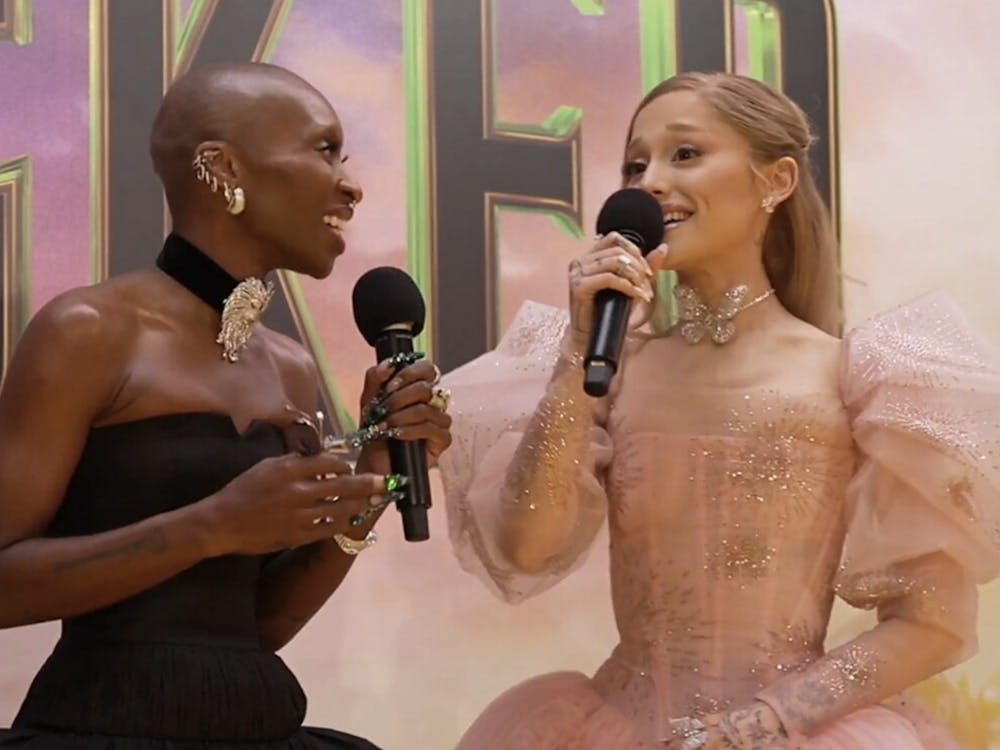Last year, Netflix released the first season of “Unbreakable Kimmy Schmidt.” The show’s premise is absolutely wild: Kimmy (Ellie Kemper), a peppy and resourceful girl, has been trapped in an underground bunker by a crazy preacher for 15 years. She’s eventually rescued and moves to New York as a hopeful and innocent twenty-something with a middle school education.
It sounds like a disaster. It’s too strange, too abstract, too much of a loaded subject, but “Unbreakable” has some special people working on it. The show is produced by Robert Carlock and Tina Fey, the respective producer and star of NBC’s hit sitcom “30 Rock.” “Unbreakable” features cameos from veteran pros like Fred Armisen, Kenan Thompson and David Cross. If anyone could pull it off, it’s these guys.
And pull it off they do. The show is exuberant, charming and energetic, each episode an unadulterated shot of cheer.
Few shows have ever boasted a jokes-per-minute ratio as high as “Unbreakable.” Like its NBC progenitor, “Unbreakable” is peppered with pop culture references and offhanded witticisms fired at machine-gun pace. The style has a high ceiling but a low floor — when the jokes are hitting, the show is brilliantly funny, but if the pop culture references grow too obscure, which they do at times, and a few jokes fly by without contact, the show can feel self-important and abstruse. For the most part, though, the whizzing jokes work, to an ebullient effect.
Because of their unrelenting frequency, the gags in “Unbreakable” have impressive range. Wealthy aristocratic socialites are parodied sharply by the bloodthirsty Deirdre Robespierre (Anna Camp), but hipsters and yuppies fall under fire as well. “What the hell is a vape?” exclaims Titus (Tituss Burgess) incredulously as he desperately fights gentrification.
The characters in “Unbreakable” are almost cartoons, each more impossibly ridiculous and unrealistic than the next. But the outlandishness is part of what makes the show so charming. Some of the show’s best moments are its gaudy physical comedy. Titus’s constant, flamboyant histrionics never fail to amuse, and seeing Kimmy grimace, smile and then put on her best seductive smirk when approached at a bar for the first time is delightful. These characters relate by wearing their hearts on their sleeves. They are familiar and endearing because they show the deepest of human emotions multiplied by a thousand.
What really sets “Unbreakable” apart, though, is its very nature. At its core, the show is joyful and empowering. It celebrates innocence, love, feminism and hope in the face of daunting obstacles. “They alive, dammit! Females are strong as hell!” proclaims the theme song. Beneath all of the jokes runs a thinly-disguised undercurrent of goodness which is unusual in modern television.
For all their wonderful humor, shows like “The Office,” “Louie” or “Veep” lack the same sense of liberating elation. Those shows are funny because the characters are bumbling and incompetent. The motley crew of “Unbreakable” features plenty of fecklessness as well, but the characters are not the butt of the jokes. They never make us cringe — they only inspire devotion and hope. Therein lies the show’s real value.





